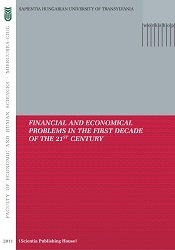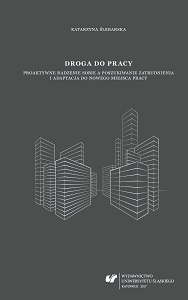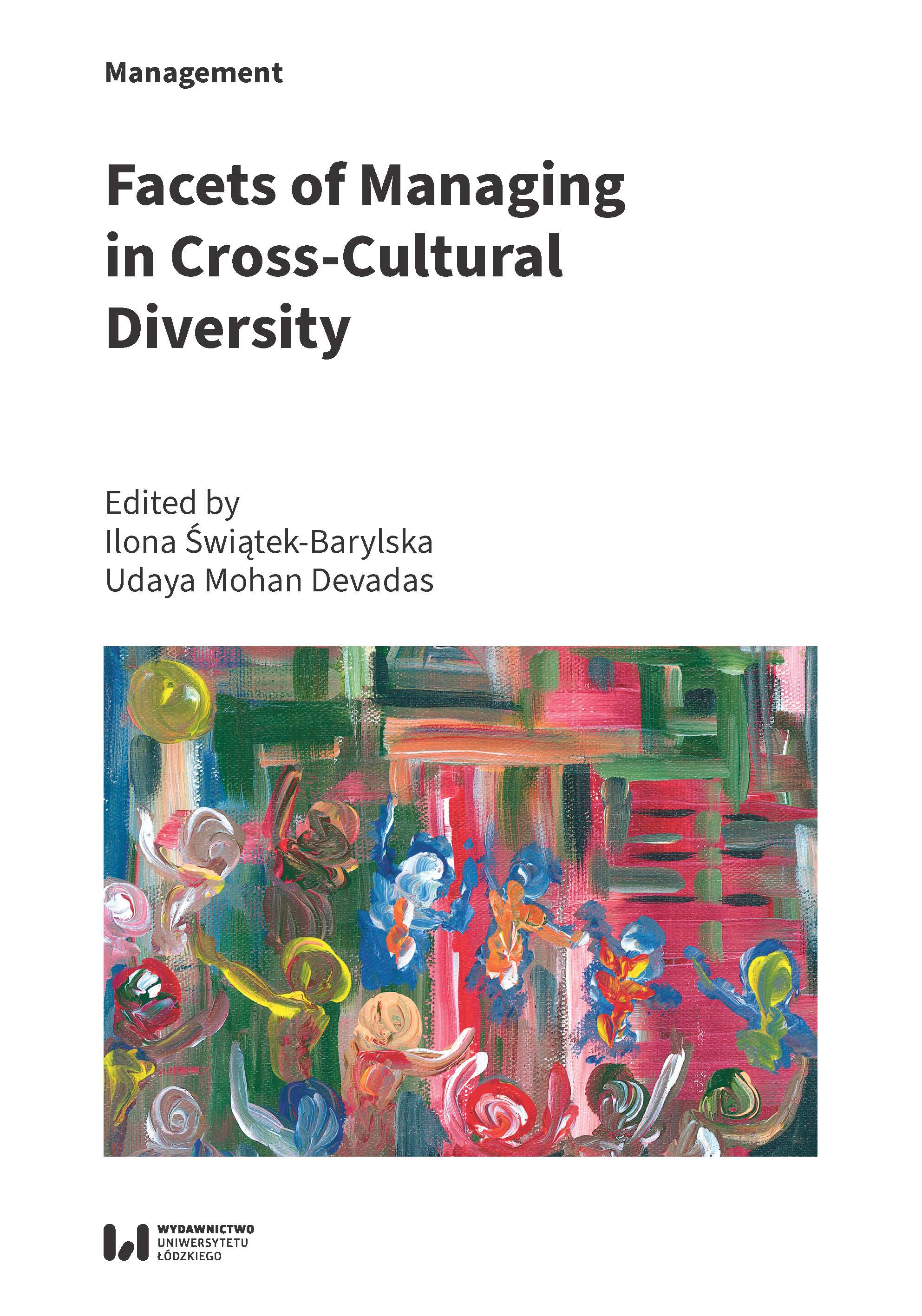Author(s): Katarzyna Ślebarska / Language(s): Polish
The employment and unemployment structure within the labor market is shaped to a large extent by economic changes and ongoing technological progress. The development of new disciplines and technologies simplifies work and generates demand for certain specialists. Concurrently, industry’s rapid development and informatization contribute to an ever more often depreciation of the human being in favor of the machine. Redefining the concept of professional career, which can no longer be perceived through the lens of workingin the same organization and for one employer during one’s whole life (life-time career), highlights new trends on the labor market, such as temporary, short-term or part-time employment. The risk of job loss becomes realistic, which in turn frequently fosters negativephenomena in the work place such as aggressive rivalry, devaluation of values and moral rules. Unfavorable workplace atmosphere is particularly felt by organizational newcomers. In the entry phase, an employee who is new to an organization needs to gain orientationin the existing expectations regarding their functioning at the workplace at a relatively quick pace. The process of adapting to new vocational settings is often accompanied by feelings of confusion, uncertainty and insecurity. On the one hand, an individual’s adjusting to an organization is influenced by the organization itself, proposing various socializing techniques. On the other hand, new employees themselves actively seek the needed information (Bauer et al., 2007). The theory of organizational socialization (van Maanen & Schein, 1979) highlights that the goal of newcomers is reducing the uncertainty felt in the entry phase so that their environment becomes more predictable (Berger, 1979). Such an approach corresponds withthe process of adapting to a new workplace. The insecurity may be mitigated, among others, by information acquired from various sources, particularly through social interactions with supervisors and coworkers (Saks & Ashforth, 1997). Through various techniques and channels, employees are provided with information that is necessary in order do their job well (role clarification), those concerning possibilities to function well in the face of real requirements of their professional roles as well as those regarding social relations in theworkplace (Miller & Jablin, 1991). The settings that are unfavourable to job integration may lead to vocational exclusion. Phenomena such as unemployment, collective and individualredundancies, striving to reduce overemployment and inability to obtain permanent employment increase rivalry, fear of redundancy and feelings of permanent threat. The individuals who are forced to change their workplace often times face difficulties with findinga new one. Frequently the unemployment period lasts, as a result of which individuals are classified as long-term unemployed. In such circumstances the issue of efficient coping with joblessness becomes vital. In a traditional view, coping with difficulties is most frequently analyzed in the aspect of reactivity. This implies focusing on the stressful events that have already occurred. An individual is oriented towards compensating a loss or wrong that occurred in their past. Even though such mode of coping seems to be adequate while coping with joblessness, the process of seeking new employment requires individuals to go eyond sole reactivity. A question arises regarding the type of coping activity that would prove most useful in the reemployment seeking process. The present work provides empirical verification regarding a proposed answer to this question, namely: proactive coping. With regard to the proactive coping theory (Schwarzer & Taubert, 2002), the coping process is oriented mostlytowards enhancing the resources that are helpful in attaining ambitious and developmental goals. Proactive individuals view difficulties as challenges. In spite of being aware of risks and potential threats, do not perceive them as losses or wrongs (Greenglass & Fiksenbaum,2009a). Proactive coping is mostly analyzed in relation with health and general well-being. The presented research applies the proactive coping theory to a distinctive context, that is, coping with joblessness. The study’s primary focus was understanding unemployed individuals’ job search behaviors. Increased efficiency of job search behaviors leads for reemployment. However, the measure of reemployment success should not be constricted to signing a job contract – it should also involve maintaining the job. For this reason, the newcomers’ process of adapting to the workplace gains crucial importance. Career paths nowadays represent significantly lower linearity and are less connected with one workplace than it could have been observed in the not too distant past (Hall, 2004). Therefore, employees often times face a necessity to change jobs – on average even once every two years (Bauer & Erdogan, 2011). This translates into ongoing involvement in the process of adapting to a new workplace. Hence, effective adaptation to a new workplace is currently becoming an essential issue, and managing the newcomers’ entrance to an organization in a skillfulmanner seems to be the main task within human resources management.The past view on new employees described them as submissive, passive individuals who adjust to their environment and go with the organization’s flow (van Maanen, 1976). However, the concept of Proteus’s career (Hall, 2004; Turska, 2014) highlights thatemployees demonstrate an ever higher responsibility for their own professional development, which increases the significance of individual proactivity (Griffin, Neal, & Parker, 2007). In contrast with the older theorizations, employees are currently perceived as active participants involved in their own adaptation processes (Chan & Schmitt, 2000; De Vos, De Clippeleer, & Dewilde, 2009). Proactive adaptation is described as newcomers playing an active role through demonstrating initiative in learning etc. Proactivity appears to be an element that is even more significant than the support received by new employees in an organization, such as, for example, feedback or advice provided by supervisors (Savickas, 1997). A question can be posed if and in what ways newcomers’ proactivity can be boosted. This work presents results of the Author’s own research works which analyze one of the plausible answers to the mentioned question, namely: through enhancing proactive coping. The study was carriedout in a sample of newly employed workers. It employed an intervention aimed at boosting proactive coping. The research work had two primary goals: firstly, to establish the role of proactive coping in taking actions aimed at finding employment and in the process of adapting to a new workplace that follows reemployment (adaptation results: well-being, role clarification and intention to change jobs), and secondly, to provide an answer to the question if proactive coping can be acquired through training. The first goal was pursued through two independent measurements carried out in the following samples: 1) unemployed people, 2) newly employed workers. The second aim was furthered by measurements conducted in the newcomers’ sample. An important aspect of the analysis was juxtaposing the employees on the basis of their status prior to entering a new organization (unemployed versus employedelsewhere). Due to the results of remaining unemployed, an assumption was made regarding differences in proactive coping between the considered groups. The main focus was on reemployed people, which forms a continuation of the job-seeking process that was analyzedon the grounds of a cross-sectional study carried out in a group of unemployed people.The presented work comprises two parts, namely: theoretical and methodological/empirical one. The theoretical part describes a selection of issues connected with the topic of proactive coping during job search and reemployment, which constitutes the theoretical framework for the Author’s research. This part comprises three chapters. The first one isc centered on the issue of reemployment. It provides readers with an introduction to the issue of unemployment,which remains a serious psychological and social problem, and on the phase of entering a new workplace. Unemployed people were herein portrayed as ones who take actions oriented towards finding employment. Several psychosocial factors accompanying such people’sreemployment were also identified. The adopted perspective that focuses not only on the job-seeking process, but also on the adaptation to a new workplace allows grasping both the success linked with starting a job and remaining in it for a longer period. The emphasis was placed on proactive coping both during job search and adapting to new vocational settings.Chapter two provides a description of proactivity and proactive coping based on the proactive coping theory (Schwarzer, 2000; Taubert, 1999). Proactivity was portrayed in a two-way manner – as an individual’s dispositional trait and as a contextual, changeable factor.Subsequently, the contextual approach to proactivity was highlighted as one allowing a possibility to influence it. When the role of proactive coping as a remedial strategy is considered, it is expected that greater skills at performing proactive coping actions can be acquired through certain activities, for example training.The main area of interest in this work is the ways of dealing with joblessness, i.e. job search behavior (Kanfer et al., 2001), as well as with adapting to a new workplace. Hence, the following third chapter is dedicated to the topic of proactive coping, both while being unemployed and during reemployment. It outlines the predictors of reemployment, namely: job search behavior and expectations towards future job, in relation to the met-unmet expectations theory (Irving & Montes, 2009; Porter & Steers, 1973; Wanous, Poland, Premack, & Davis, 1992). The theoretical part of the work is concluded with an outline of the possible outcomes of the process of coping to a new workplace such as job satisfaction and role clarification. The second part of the work includes a presentation of the Author’s own research results. This part comprises two chapters describing separate studies. The first chapter is embedded into the area of unemployment and focuses on actions connected with job search. The second chapter analyzes the process of adapting to a new workplace following reemployment. Primary emphasis is placed on the outcomes of work adaptation. It describes the research tenets and aims, questions and hypotheses formulated in line with the described research model as well as a description of the samples and measures. While the study of unemployed people was cross-sectional in nature, the one concerning reemployment was longitudinal and also employed an intervention. The intervention, designed by the Author, was aimed at enhancing proactive coping among newcomer employees. For both studies, the outcomes of proactive coping were identified, namely: the intensity of job-seeking actions and new workplace adaptation outcomes, including perceived well-being, role clarification and intention to change jobs. The presented results point to conclusions that are both theoretical and practical in nature. Firstly, the studies test the proactive coping theory in the context of coping with unemployment and reemployment. Regarding this field, the results indicate a salient role of proactive coping in unemployed people during job search andadapting to a new workplace. Secondly, the results portray relationships in a multi-aspect manner. Thirdly, the studies reach beyond the understanding of proactivity that limits it to being a relatively constant personal characteristic. The proposed training, aimed at increasingproactive coping through gathering available resources and enhancing one’s control, indicates a possibility to boost the level of coping proactivity. The results also point out a necessity to pay proper attention to the training methods used with regard to newcomers in order for these methods to be effective in fostering proactive coping. On that account, the result of these research works serve as a useful starting point for additional intervention programs, at the same time highlighting the issues that merit being incorporated while planning such interventions.
More...




















